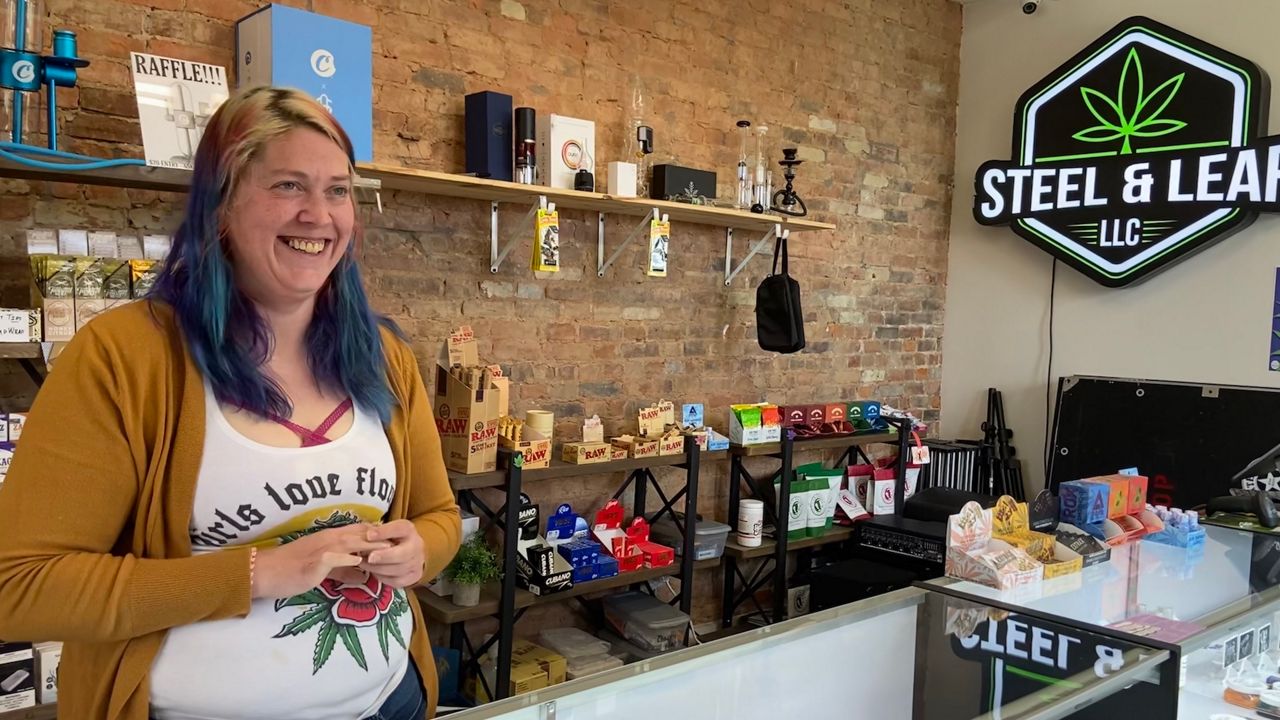LOUISVILLE, Ky. — April 20 is a special day for Virginia Lee, the assistant manager at Steel & Leaf, a CBD shop in Louisville’s Phoenix Hill neighborhood.
“This is a day to be loud about your smoking, to dispel rumors that stoners are lazy, and just to enjoy the holiday,” Lee said Wednesday. “And we treat it like a holiday.”
To celebrate, the shop, which sells edibles, vapes, tinctures, and THC-infused pop rocks, is throwing a 4/20 Jamboree on Wednesday evening. The event will be half party and half rally, as attendees look back on another legislative session in which Kentucky lawmakers failed to end the commonwealth’s longtime prohibition on cannabis.
House Bill 136, a restrictive bill legalizing cannabis for some medicinal purposes, was the closest legislation to passing. But despite the support of Gov. Andy Beshear and 90% of Kentuckians, the measure, which passed out of the State House with a bi-partisan majority, failed to even receive a vote in the State Senate.
From Lee’s perspective, HB 136 didn’t go nearly far enough.
“I don’t want to have a conversation about legalizing or decriminalizing or making something available if we’re not making it available for everyone,“ she said.
Other legislation would have gone much further, legalizing cannabis for medical use and adult use and requiring expungement for those previously convicted of cannabis-related offenses. But the “LETT’s Grow” bill from Rep. Rachel Roberts (D-Newport), did not even receive a committee hearing.
The failure of the medicinal cannabis bill and the disregard for the adult use bill suggests Kentucky is a long way away from joining states such as Colorado and Washington, which have opened up their cannabis markets.
That’s unfortunate, Lee said, because the commonwealth is in a unique position to succeed.
“This area grows hemp, and possibly cannabis, very well,” she said. While other states are often forced to import crops, Lee said Kentucky wouldn’t need to.
“From farm to store, we could keep that all local and we could sustain revenue windfalls that could continuously support us,” she said.
Indeed, states with legal adult use cannabis bring in significant sums in tax revenue.
Colorado, which legalized adult use in 2014, brings in roughly $30 million a month. Illinois, which shares more than 100 miles of border with Kentucky and legalized cannabis for adult use in 2020, collects roughly $40 million in related taxes each month.
Different states spend tax revenue from legal cannabis in different ways. Several require some of the money to be invested in historically marginalized communities and addiction treatment programs. Others send tax revenue to schools or law enforcement.
Kentucky could do something similar. “We have everything we need to make this lucrative and sustainable in Kentucky, but we’re not doing it,” Lee said.



